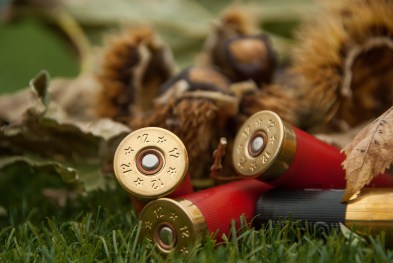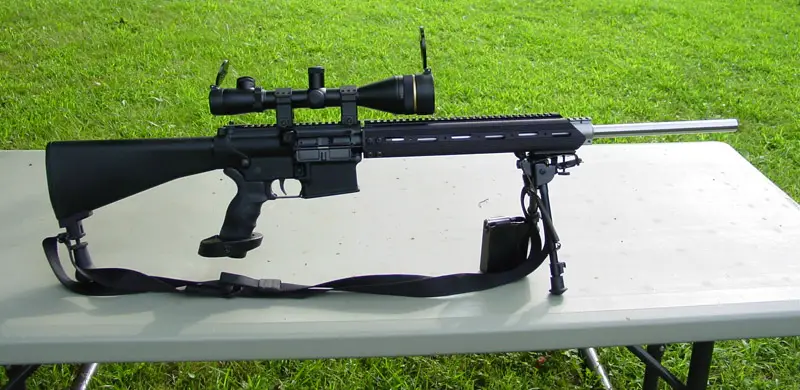Choosing the Right Gun for Hunting
Becoming a successful hunter begins with purchasing the right gun, and the perfect gun will vary from one hunter to another. With endless gun choices on the market, it can be difficult to know where to start when buying your first hunting gun. Add to this the countless add-on features that you may or may not need, and things can become even more confusing.
Selecting the right gun starts with focusing on what type of game you will be shooting and what your local laws will permit you to shoot. This will help you to narrow things down. The goal is to have a powerful enough gun to take down your prey quickly and humanely while managing to not destroy things like the animal’s meat and fur.
Let’s dive deeper into the factors you need to consider when making a hunting gun purchase. Of course, you want your hunting gun to fit you properly and offer the correct amount of recoil, but let’s also look at why factors like caliber, gun materials and construction, and optics are also important.


Choosing a Rifle
There are many types of guns that can be used for hunting, with popular options being muzzleloaders, 12-gauge shotguns, and .22 caliber long rifles. Rifles have long been the weapons of choice for the majority of hunters so let us focus on them.
The first decision when looking at rifles is whether you are after a single shot or repeating rifle. The single shot rifle is the traditional gun used by early hunters and are therefore often more elegant and nostalgic. Within single-shot rifles, you then have the choice between rolling-block action rifles, falling-block action rifles, trapdoor single-shot action rifles, and break-open rifles.
When it comes to repeating rifles, varieties include pump-action, bolt-action, lever-action, and automatic.
Popular rifles under this category include the AR 10 rifle which is a stronger hunting gun than the AR-15. The AR-10 is perfect for those hunters needing to shoot long range, enjoy still hunting, and will not need to be carrying their rifle long distances since the AR-10 does have a bit of weight to it.
With the AR-10, you also have more caliber choices when hunting game like deer, elk, and boar. The other benefit of this rifle is that it can be easily modified and re-purposed, allowing you to change out calibers, handguards, barrel lengths, etc. This also allows you to switch out a factory-installed magazine that may be deemed illegal for hunting purposes in your local area. You always need to adhere to specific magazine laws in your state to ensure you are not hunting with an illegal rifle setup.
Photo by Mlotziii, CC BY 3.0 Wikimedia Commons
Rifle Caliber
Hunting rifles come in a number of different calibers, which describes the size of a rifle’s bore and the cartridge size that it will take. The type of game you wish to hunt will determine which size cartridge you will need to effectively take it down, which in turn will determine the caliber of rifle you need to be looking at.
Each rifle is designed for a specific type of cartridge. Smaller .22 caliber rifles are great for smaller game like squirrels, whereas a .30-caliber round is more useful for deer hunting, and a shotgun with shotgun shells for turkey hunting may be best when hunting fowl. Keep in mind that the higher the caliber, the greater the recoil will be. With more hunting experience comes knowledge of what caliber options are best suited to your needs.


Having Good Optics
The lack of good optics can affect your range of vision significantly and cause you to miss, or worse, simply wound your prey instead of killing it quickly and humanely. Telescopic sights will magnify your target, giving you the ability to better identify your prey and make more accurate shots.
Rifle models can support different optics, but your chosen rifle may have limits on what type of scope is available to you. Most have basic open sights installed on top of the barrel, but many allow you to add a telescopic site using a mounting base and scope rings.
You can make use of open sights, a telescopic sight, or a combination of the two. You have near-sight optics as well as scopes with upwards of 6x magnification. Long range precision rifle scopes may be ideal for large slow moving large game such as elk in the distance but will prove troublesome when shooting fast moving prey at close range. Using higher powered optics for shooting game at a long distance will also likely require a steady shooting rest such as a bipod.


Rifle Materials and Construction
While your budget may limit the quality of rifle you can afford, you should always look to purchase a rifle that will hold up to the elements and last you a long time. Having to constantly replace inferior rifles may end up being more costly in the long run.
Rifles barrels and stocks can of course be made from a variety of materials such as stainless steel or carbon steel when it comes to the barrel. Meanwhile, stocks often come in various woods or synthetic materials like fiberglass which may be more resistant to moisture.


Balance, Weight, and Feel
Above all else, your rifle needs to feel comfortable to you. What feels balanced to one hunter may be awkward and cumbersome to you, so try out various rifle models at a gun range before you commit to a big purchase. It’s important to remember that the balance point will be different for each hunter.
You want to ensure all the features of your rifle are easy for you to use such as the ergonomic controls, safety, trigger, etc. When it comes to balance, a properly balanced rifle can feel as much as 20% lighter than an improperly balanced gun. A balanced rifle with proper weight distribution also makes it steady for off-handed shooting.
And when it comes to weight, a lighter rifle may be easier to carry through the woods and allows you to keep up better with moving game, but a heavier rifle set on rest such as a bipod will often offer better accuracy since lighter rifles can be a bit jittery when taking a shot if not held snuggly against the shoulder.

Do Your Research
When purchasing a hunting rifle, especially if it will be your first, make sure to do a lot of research. A rifle is a lifelong investment for many, and the model you choose may limit the type of game you can hunt or the type of accessories you can purchase later down the track.
You may need to stick within a budget, but know that going cheap may come back to haunt you later on.
Visit rifle manufacturer websites and read all the specs they have mentioned about their various rifles. Then check reviews to see what actual hunters think of various makes and models in the field.
Read blogs on hunting and rifles to check out which models are the latest and greatest for the types of game you are interested in. Narrow down a few rifles that seem like they would be ideal for your needs and then try them out before buying if possible. Your local gun store can also offer a wealth of information so don’t be afraid to ask questions.
Make a checklist of all the different kinds of accessories you may want to add and then add up the total cost of everything to see where you stand with your budget. Going all out on a superior rifle may leave you with nothing for the accessories you may need for a successful hunt. Alternatively, if you currently have other guns that you would like to sell in order to raise money for the hunting gun of your dreams, selling your guns to Cash for Arms for top-dollar could get you closer to the budget needed for the new rifle you’re really interested in.
Final Parting Shot
Finding the right hunting rifle requires a bit of research and understanding everything that goes into a quality rifle. Equally as important as selecting the right hunting gun for your individual needs, is knowing how to properly maintain and safely store your gun.
Always read your rifle’s owner’s manual so you will know exactly how to store, load, and fire your rifle safely. Read up on local gun laws to make sure the gun and accessories you are purchasing is legal, and adhere to local hunting laws in terms of seasons for various species.
Taking firearm classes will help you improve your marksmanship and ensure you know how to properly operate and carry your rifle. With that said, we wish you happy hunting.




















